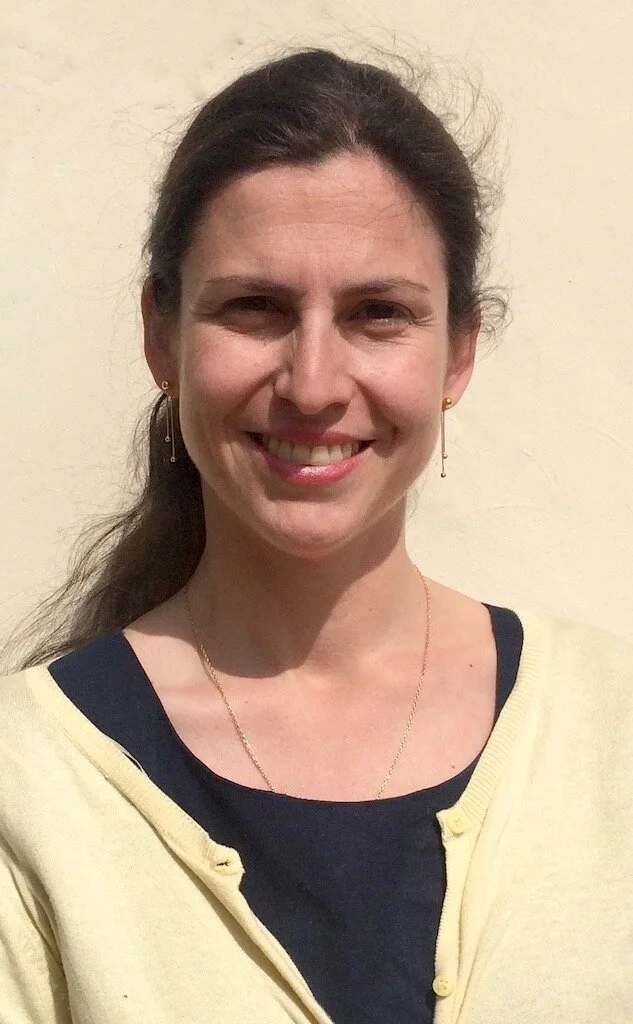Lt. Commander Audrey
Lt. Commander Audrey in action. Photo credit: Stéphane Marc/Marine Nationale/Défense
Audrey is a Lt.Commander in the French Navy. But she could also be a squadron leader in the air force or a major in the army because she successfully passed the exams to get into the officer training schools of all three armed forces! “Even as a small child I was attracted to anything military. I liked things orderly and methodical and wanted to do something involving teamwork and travel. I couldn't imagine sitting behind a desk in an office all day,” she tells me.
She is currently the director of surface warfare training at the ESCAN (Ecole des systèmes de combat et des opérations aéromaritimes). This school of further instruction for naval officers is at Saint-Mandrier-sur-Mer on the Mediterranean coast; it’s where they learn about surface warfare, or underwater warfare, or about information and communications systems.
Her father and brother are both in the CRS, the general reserve of the French National Police Force best known for crowd and riot control. But she was the first member of her family to join the armed forces. “I hesitated a bit between the air force and the navy. I feared there might be more misogyny in the army so I concentrated on the other two. But then I realised that if I became an air force pilot I would spend much more time at an airbase than I would travelling which is what I really wanted to do. And the navy left open the option of becoming a naval pilot,” she smiles.
Audrey's school results were excellent.“I had a very scientific bent and really liked maths and physics,” she tells me. In the Mediterranean town of Saint-Raphaël where she grew up there was an option for secondary school children to spend every Saturday doing military preparation. This entailed learning to march, to obey and other basics. “It's a very good way to prepare youngsters who are thinking of joining the military,” she explains.
““I’ve never suffered because of my gender and I’ve commanded men with no difficulties at all””
She finally plumped for the Navy which seemed to be the best fit for her. Attendance at the Naval School (where she met her husband) lasts three years after which students list, in order of preference, the speciality they would like to pursue. She got her second choice which was “detector”, the officer at the heart of operations supplying vital information to the ship's commander concerning the tactical situation around the warship. To do so they observe, analyse and evaluate threats by using electromagnetic detection systems such as radars, Identification Friend or Foe (IFF) and aircraft beacons and by looking at the tactical information from the combat systems and the electronic warfare systems (scanners, anti-missile decoy launchers, jammers).
One of the aspects Audrey loves about the Navy is that on-board ship you occupy posts in parallel to your speciality. “So, I have been first mate, in charge of logistics and sports officer,” Audrey explains as she juggles the interview with me via Skype, her boss on the phone, and finding a film (aircraft landing on the Charles de Gaulle aircraft carrier!) to entertain her young son whose kindergarten is closed... the new coronavirus pandemic reality!
Audrey remarks that the Navy is bending over backwards to accommodate all its personnel “because it wants to keep its sailors and every single sailor counts.” She explains, for example that “before we had children we could both be at sea simultaneously. But since the birth of our daughter we, with the help of the Navy human resources department, ensure that one of us always has a land-based job. And that person looks after the children and runs the household whilst the other has the sea-based job.” How do they cope? I wonder. “You need to be really well organised,” she laughs “and we have a lot of support from our family and friends. We're lucky that we have grandparents close by who are always happy to step in if necessary.” And she thinks it really helpful that both she and her husband are in the same force. “It means that we can adapt perfectly one to the other and can understand and visualise exactly what the one at sea is going through and why it might not be feasible to chat on the phone at that particular moment.” Is there no professional jealousy? I ask “Well,” she hesitates, “it's true that my career is taking off faster than my husband's so, for example, I asked for my second ship command to be put on hold because he hasn't had a first command yet.” She has already commanded a training ship with about 15 sailors and 12 trainees aboard.
In the French Navy those ships that have female personnel aboard of officer rank only are known as “non-feminised” whilst those that have female personnel of all ranks aboard are known as “feminised.” The Charles de Gaulle aircraft carrier with its 1,200 sailors is one such ship “and is the only feminised ship I've been on,” Audrey remarks. “I've been on ships where there were 250 people on-board and we were only three women officers but it has never been an issue, I've never suffered because of my gender and I've commanded men with no difficulties at all,” she stresses. But she admits that things have been easier for her generation (she's 35) than for older women. “They did the donkey-work for us,” she concedes.




